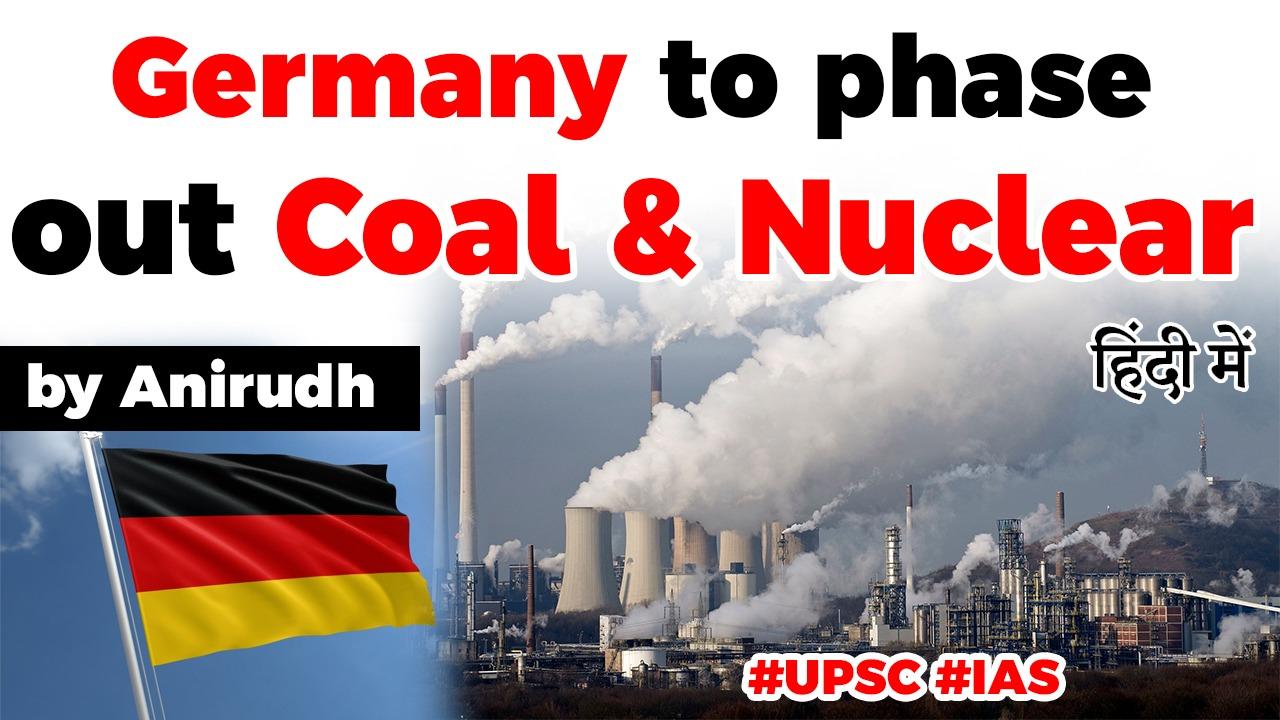Table of Contents
Why in News
- Germany’s parliament was preparing to pass new legislation finalising the phase-out of coal as an energy source.
- Both houses of parliament were to vote on the roadmap that envisions the phase-out of coal between now and 2038.
- Germany is the first industrialized country that leaves behind both nuclear energy and coal energy. .
Climate Change
- To achieve internationally agreed targets by Paris climate agreement , all countries must achieve rapid decarbonisation of all sectors by the middle of this century.
- Germany’s growth in production of solar and wind power is an example for rest of the world to increase the proportion of renewable energy in their total electric power production.

Protests
- Greenpeace and other environmental groups have staged vocal protests against the plan, including by dropping a banner down the front of the Reichstag building .
- They argue that the government’s road map won’t reduce Germany’s greenhouse gas emissions fast enough to meet the targets set out in the Paris climate accord.

Carbon Emission
- Germany, however, has exhibited poor performance in the context of more recent European carbon emission reduction targets. The increasing share of RES has not been sufficient to reduce carbon emissions in Germany.

Nuclear Energy V/S Renewable Energy
- The increasing share of RES has not been sufficient to reduce emissions in Germany due to a decline only in nuclear and the maintenance of continuous high coal-fired electricity production.

Leader to Laggard
- Nearly forty years after the beginning of the German energy transition, Germany still remains the world’s biggest producer of lignite, with lignite and hard coal providing almost 40% of its electricity.
- Germany is going to miss its own climate target for 2020 by about 7%.

German Energiewende
- German energy transition towards renewable energy sources originated from bottom-up initiatives by people and privately owned companies promoting renewable energy sources.
- Share of RES in total power production increased from 3% in 1990 to 40% in 2018.
- it created around 350,000 new jobs, spread relatively evenly across the entire country.


Nuclear Power in Germany and Fukushima Disaster
- The 2011 Fukushima nuclear disaster in Japan led to widespread anti-atomicpower protests across Germany.
- Two months after the accident, Chancellor Angela Merkel announced that all plants would be closed over the next decade.
- Germany will be the second country after Italy to shut down all of its atomic energy stations.

Nuclear Phase Out Enters Final Stretch
- Germany has vowed to start decommissioning all of its 17 nuclear power facility by the end of 2022.
- In December 2019, Operators began shutting down the Philippsburg nuclear power plant in southern Germany.
- It was the only nuclear plants still operating in the southern state of Baden-Württemberg.

2050 and 2038
Germany aims to become green house gas neutral by 2050. It has set the preliminary target of cutting emission by at least 55% as compared to 1990 levels. To achieve this target Germany wants to phase out coal power by 2038.
Latest Burning Issues | Free PDF























 WhatsApp
WhatsApp